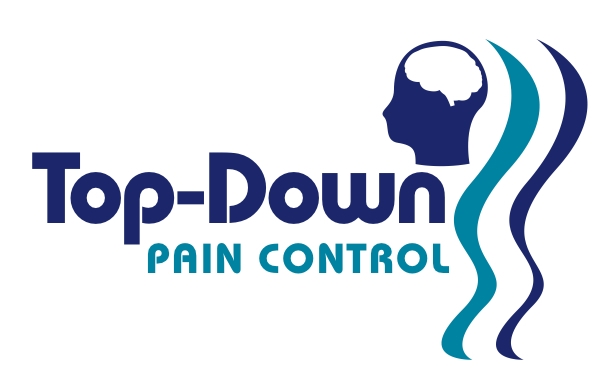“The estimated number of new cases of stress, depression or anxiety has remained broadly flat for more than a decade, with an estimate of 244 000 in the latest year...
Stress, depression or anxiety disorders accounted for the majority of days lost due to work-related ill health... 11.3 million days.”
WHO IS THE WORKSHOP FOR?
As work-related stress is universal, this workshop is for any group, in any work setting. The workshop will provide employees with immediate skills for living and working with stress in work and life. Moreover, the workshop can provide employers with a framework for targeting organizational stress for current or new staff at orientation.
OVERVIEW
Stress is an inevitable aspect of life and work, especially in health care but how prepared are we for the waves that come our way? High-level stress occurs across the workforce; it costs a fortune to patch and causes immense suffering. The fiscal cost (EC-ESA 2002) is staggering in terms of diminished productivity, sick leave, bullying and staff turnover. The personal cost impacts on health and can manifest as anxiety, depression, ‘burnout’ and alcohol and substance abuse.
With such an enormous and costly problem it makes sense to be ‘skilled up’ and prepared for stress in the workplace. However, culturally this is rarely addressed in education and training. In the health sector for example, stress is a likely factor in contributing to burnout amongst (highly trained) ICU staff (Myhren, Ekeberg, & Stockland, 2013). While stress in newly qualified nurses correlates strongly with intention to leave in the first or second year (HEE, 2014). Similarly, stress among young doctors is on the increase (Jaques, 2013). Clearly, denial and avoidance are ineffectual and costly strategies at all levels of education, training and practice. Typical approaches to managing stress and painful events tend to rely on learned patterns of avoidance including, ‘don’t get involved’, ‘try not to think about it’; ‘don’t let it get to you‘. Culturally, in the UK it is the ‘stiff upper lip’; in Australia the blindly optimistic ‘She’ll be right (sic) is denial on par with Monty Python’s Black Knight. Paradoxically, trying not to think about something puts it into the spotlight. While avoidance can be an effective short-term measure it is less useful in the long-term where stress is cumulative and literally unavoidable because it comes with the with the job.
This workshop is grounded in a combination of Acceptance and Commitment Therapy (ACT) (Hayes, Strosahl & Wilson 2011) and Personal Construct Psychology (Caputi, Foster & Viney, 2008; Kelly, 1955). ACT is both a set of guiding psychological principles and a Cognitive Behavioural Therapy. PCP is a psychological theory based around our view of the world within a framework of constructs with strong emphasis on the existence of alternatives rather than ‘givens’.
The primary prevention approach in this workshop focusses on developing psychological flexibility with strategies aimed at clarifying values, acceptance and living and working with stress rather than avoidance. In contrast to avoidance-based coping, exposure to anxiety and stress is integral within the ACT approach. Psychologically, exposure is healthy because it provides opportunities to develop and practice coping skills such as defusion and mindfulness in the face of anxiety and stress.
LEARNING OBJECTIVES
Upon completion of the workshop, participants will be able to:
Describe the basic tenets/application of an ACT and PCP approach to working with stress.
Use mindfulness techniques and principles from ACT in relation to working with stress.
Develop ways of increasing a sense of psychological flexibility in regard to anxiety and stress.
Discuss the merits of implementing an ACT-based health and safety thread to target stress amongst existing employees and in the orientation of new staff.
WORKSHOP PROGRAM
The half-day ACT on Stress workshop can be conducted morning, afternoon or two workshops in one day.
Morning Workshop
08.00 – 10.00 Tackling work-related stressors: what is possible, not possible and what to do when stress is unavoidable.
Two psychologies in managing stress : Personal Construct Psychology (PCP) and Acceptance and Commitment Therapy (ACT).
10.00 – 10.30 Tea Break
10.30 – 12.00 Reconstruing stress: mindfulness and defusion techniques for living and working with stress.
Afternoon Workshop
13.00 – 15.00 Tackling work-related stressors: what is possible, not possible and what to do when stress is unavoidable.
Two psychologies in managing stress : Personal Construct Psychology (PCP) and Acceptance and Commitment Therapy (ACT).
15.00 – 15.30 Tea Break
15.30 – 17.00 Reconstruing stress: mindfulness and defusion techniques for living and working with stress.
REFERERENCES
Caputi, P., Foster, H. & Viney, L. (2008). Personal construct psychology: New Ideas. New York: Wiley.
European Commission - Employment and Social Affairs (2002). Guidance on work-related stress. Spice of life or kiss of death? Executive summary. Luxembourg
Hayes, S.C., Strosahl, K.D. & Wilson, K.G. (2011). Acceptance and commitment therapy: the process and practice of mindful change. (2nd ed.). New York: Guildford.
Health Education England NHS (2014). Growing Nursing Numbers. Author.
Health and Safety Executive. (2014). Health and safety statistics: Annual report for Great Britain 2013/14. Available: http://www.hse.gov.uk/statistics/overall/hssh1314.pdf
Jaques, H. (2013). Nearly half of UK young doctors say stress levels rose last year. BMJ, 346:f2826.
Kelly G.A. (1955). Psychology of personal constructs. New York: Wiley.
Monty Python and the Holy Grail 1974 Film.
Myhren, H., Ekeberg, Ø. & Stokland, O (2013). Job satisfaction and burnout among intensive care nurses and physicians. Critical Care Research and Practice. Available: http://dx.doi.org/10.1155/2013/786176

